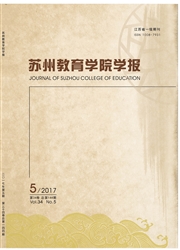

 中文摘要:
中文摘要:
学术界对民国时期中共领导下的通俗讲演所的研究付之阙如。早期通俗讲演所中的代表人物主要有何叔衡、毛泽东、朱务善、恽代英等。到国民大革命时期,通俗讲演所得到了迅速的发展。根据地时期主要有湘鄂西、湘赣、闽西、江西、四川、晋察冀边区等地区的通俗讲演所。在讲演员的选拔上,主要强调和重视政治面貌、政治观念及革命积极性,不太重视文化程度;在讲演技巧上,注重语言的通俗化及适应下层民众的心理需求。中共领导下的通俗讲演所,对民众革命思想的启蒙以及激发其参加革命的热情起到了重要的作用。
 英文摘要:
英文摘要:
The research on the the popular speech institutes led by the CCP during the Republic of China is neglected by the academia. Its main representatives include He Shuheng, Mao Zedong, Zhu Wushan, Yun Daiying etc., in the early times. It developed so fast during the national revolution, which covered West Hubei Base, Hu'nan and Jiangxi Base, Western Fujian Base, Jiangxi Base, Sichuan Base, and so on. In terms of actor selection criteria, they valued political affiliation, political ideas and revolutionary enthusiasm instead of degree of culture. In terms of speech skills, they paid attention to the popularization and use of language in order to satisfy the lower-class people's psychological need. In a word, the popular speech institutes led by the CCP played an extremely important role in people's revolutionary thought enlightenment and in arousing the masses revolutionary enthusiasm.
 同期刊论文项目
同期刊论文项目
 同项目期刊论文
同项目期刊论文
 期刊信息
期刊信息
